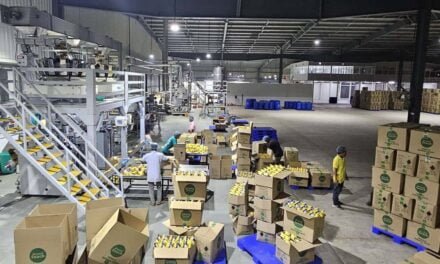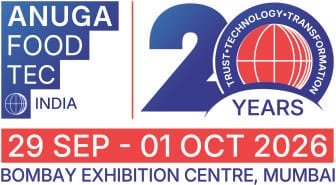The Indian packaged food market is estimated to be around USD 35 billion and is expected to be double in the next five years to USD 70 billion. The government’s recent nod to the Rs 10,900 Cr PLI scheme — which has been welcomed by food companies around the country — will help India’s packaged food majors to build their brands while expanding in foreign markets.
Table of Contents
The Production Linked Incentive (PLI) scheme for the food processing industry – a much-awaited move – was recently approved by the Union Cabinet. The green signal to the new PLI scheme has cleared the way for Indian packaged food majors to expand. With an approved outlay of Rs 10,900 Cr, the scheme will boost local production and enable the export of food products in four categories, apart from special support for innovative items and small and medium enterprises (SMEs) in the food sector.
What is the Production Linked Incentive or the PLI Scheme
The PLI Scheme — effective from the financial year 2021-22 — has been designed to offer incentives to select food producers from India to expand their presence in foreign markets by enlarging their production base, retail presence, and marketing and branding in export markets. With 2021-22 as the base year, the government aims to achieve an incremental production worth Rs 33,494 cr by 2027-28. Additionally, it is also estimated that the PLI scheme will be able to add 250,000 jobs by 2026-27.
The four key categories that will get preference — ready to eat (RTE) and/or ready to cook (RTC), processed fruits and vegetables, marine products and mozzarella cheese – will see manufacturers getting incentives based on their investments and incremental sales. The PLI scheme will cover SMEs with innovative and organic portfolios in free-range eggs and poultry meat. The PLI scheme will see a total outlay of Rs 9,040 cr over six years that has been allocated for larger producers against their incremental sales, with the most significant chunk of Rs 2,169 cr earmarked for 2025-26.
A further Rs 1,500 cr will be offered as an incentive to large manufacturers for their efforts to build their brands in foreign markets and marketing initiatives like in-store branding and shelf-space renting. The government’s aim is to support the creation of global food manufacturing champions, support Indian brands of value-added food products in the international markets, increase employment opportunities for off-farm jobs and ensure remunerative prices of farm produce and higher income to farmers.
Detail Guidelines for PLI Scheme (click here) | FAQs on Guidelines for (click here)
What the Industry says about the PLI Scheme

“The PLI Scheme will give a much-needed boost to the food processing industry and Indian brands for the global market”
— Varun Berry, Managing Director, Britannia Industries
Sanjiv Puri, Chairman and Managing Director, ITC, was equally optimistic about the PLI scheme and termed it a game-changer for the food sector. Complimenting the government for taking this transformative step forward, he said that the PLI Scheme would boost food processing investments, agri-exports, farmer incomes, and Indian brands for the global market.

“PLI Scheme would boost food processing investments, agri-exports, and Indian food brands in global market”
— Sanjiv Puri, Chairman and Managing Director, ITC
Sanjiv Puri, Chairman and Managing Director, ITC, was equally optimistic about the Production Linked Incentive Scheme and termed it a game-changer for the food sector. Complimenting the government for taking this transformative step forward, he said that the PLI Scheme would boost food processing investments, agri-exports, farmer incomes, and Indian brands for the global market.

“The timing is right for Government to come out with the PLI scheme. The move is expected to give a fillip to small grain food companies”
— A Prashant Parameswaran, MD, Kottaram Foods, now part of Tata Consumer Products
A Prashant Parameswaran, Managing Director, Kottaram Foods, now part of Tata Consumer Products, said that the timing was right for the government to come out with the PLI scheme with the UN’s declaration of 2023 as International Year of Millets. “The move is expected to give a fillip to small grain food processors,” he said.

“The PLI Scheme will dramatically increase value addition in the food sector, generates employment, and boosts India’s exports”
— Sudhir Sitapati, Executive Director, Foods & Refreshment, Hindustan Unilever
Sudhir Sitapati, Executive Director, Foods & Refreshment, Hindustan Unilever, said that his organisation, as one of India’s largest food processing companies, would assist in making the Production Linked Incentive Scheme a success. “Less than 10 per cent of food grown in India is processed compared to 40 per cent in South East Asia. We hope that the PLI Scheme dramatically increases value addition in the food sector, generates employment in agriculture, and boosts India’s exports,” he said.

“The Production Linked Incentive Scheme would help achieve a critical size in the global market,and it would also help some to achieve global size as well“
— Mayank Shah, Senior Category Head, Parle Products
Mayank Shah, Senior Category Head, Parle Products, believed that the PLI scheme would motivate players and help them expand their capacities and sales. The scheme would help achieve a critical size in the global market to some of the Indian players, and it would also help some to achieve global size as well. According to Shah, innovative and organic products of the small-to-medium enterprise (SMEs), including eggs, poultry meat, egg products, are also covered under the first component, which relates to incentivising manufacturing.

“The Production Linked Incentive Scheme could give a big boost to our business and hope the new PLI scheme would give them a boost to expand faster”
— PC Musthafa, co-founder and CEO, iD Fresh Food
PC Musthafa, co-founder and CEO, iD Fresh Food, said that he hoped the scheme would be appropriately implemented. If that was done, he said, it “could give a big boost to our business. We deal with highly perishable fresh food that is devoid of preservatives and chemicals. As a result, all our fresh ready-to-cook food products have a short shelf life.
The challenge with this is that we cannot waste much time on transportation. Therefore, we need a local manufacturing facility in every region we operate. Currently, our three factories at Mumbai, Bengaluru and Hyderabad and one in Ajman, UAE. This year, we plan to open a plant in Delhi to cater to northern markets. This is where the new PLI scheme will really help us.”
“We recently invested Rs 40 cr in our Bengaluru facility, the world’s largest Idly-Dosa batter factory. We intend to replicate this model in other cities and hope the PLI scheme would give us a boost to expand faster. However, we will need more details in terms of the eligibility, the subsidies, the commitment from Government and their expectation from us,” Musthafa said.
iD Fresh was in 45 cities in India, UAE and the USA and it is working to reach 60 cities this fiscal. “Plans are for new factories this year: one in Delhi and the other in the US. However, if the PLI scheme is implemented well, we expect to set up more factories helping to expand faster,” Musthafa said.
FAQs on PLI scheme for Food Processing Industry
Who can be an Applicant under PLI scheme for Food Processing Industry?
Applicant for the purpose of the Scheme shall be (i) Proprietary Firm or Partnership Firm or Limited Liability Partnership (LLP) or a Company registered in India (ii) Co-operatives; and (iii) SME and making an Application for seeking approval for coverage under the Scheme.
What are different Categories of Applicants under PLI scheme for Food Processing Industry?
Applicants can apply under three categories: Category I: Entities who apply for incentives based on Sales and Investment Criteria. Applicants under this category could undertake Branding & Marketing activities abroad also and apply for Incentives under the scheme. Category II: SMEs applicants manufacturing innovative/ organic products. Category III: Applicants applying solely for incentives for undertaking Branding & Marketing activities abroad.
What are the eligibility Criteria under PLI Scheme?
For eligibility, Minimum Sales relates to sale of all food products by the Applicant in 2019-20. Minimum Investment mean investment in Plant & 5 Machinery, Technical Civil work and Associated infrastructure during 2020-21, 2021-22 and 2022-23.
What are the consequence of furnishing incorrect data by the Applicants under PLI Scheme?
The Applicants are required to fill up correct information as it would impact their selection vis-à-vis other Applicants. Applications will be liable for rejection at any stage, if it is found that incorrect information having a bearing on the selection of the Applicant were furnished in the Application.
Can a 100% foreign-owned company be eligible under PLI Scheme?
Any Company registered in India is eligible under the scheme to apply on its own behalf or with its subsidiary/ies (clause 3.5).

















